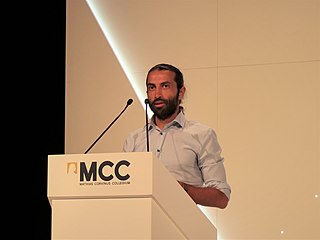A Quote by Alice Miller
Till now, society has protected the adult and blamed the victim. It has been abetted in its blindness by theories, still in keeping with the pedagogical principles of our great- grandparents, according to which children are viewed as crafty creatures, dominated by wicked drives, who invent stories and attack their innocent parents or desire them sexually. In reality, children tend to blame themselves for their parents' cruelty and to absolve the parents, whom they invariably love, of all responsibility.
Quote Topics
Absolve
According
Adult
Attack
Been
Blame
Blindness
Children
Crafty
Creatures
Cruelty
Desire
Dominated
Drives
Grandparents
Great
Innocent
Invariably
Invent
Keeping
Love
Now
Our
Parents
Principles
Protected
Reality
Responsibility
Sexually
Society
Still
Stories
Tend
Them
Themselves
Theories
Till
Victim
Viewed
Which
Whom
Wicked
Related Quotes
Modern children were considerably less innocent than parents and the larger society supposed, and postmodern children are less competent than their parents and the society as a whole would like to believe. . . . The perception of childhood competence has shifted much of the responsibility for child protection and security from parents and society to children themselves.
Are we not witnessing a situation where children are conciously rejecting their parents' value despite love and devotion given to them? The present situation has arisen because parents have failed to transmit a sustaining faith to their children. The basic reason for this failure is that the parents themselves lacked faith. Without faith, their love was an image not a reality, a statement of words not an expression of feelings
Love is at the root of all healthy discipline. The desire to be loved is a powerful motivation for children to behave in ways thatgive their parents pleasure rather than displeasure. it may even be our own long-ago fear of losing our parents' love that now sometimes makes us uneasy about setting and maintaining limits. We're afraid we'll lose the love of our children when we don't let them have their way.
You must learn to look at people who are angry with you straight in the eye without getting angry back. When children see their parents treating them this way, they then recognize the parents' authority. It speaks louder than words. Their new respect for the parents is as good for them as it is for the parents. It never works to demand respect of children. It must be given willingly as a result of strength of good character in the parents, which is manifested by their non-reaction to stress in the children.
Palestinians no longer blamed Yasser Arafat or Hamas for their troubles. Now they blamed the Israelis for killing their children. But I still couldn't escape a fundamental question: Why were those children out there in the first place? Where were the parents? Why didn't their mothers and fathers keep them inside? Those children should have been sitting at their desks in school, not running in the streets throwing stones at armed soldiers.
In today's world parents find themselves at the mercy of a society which imposes pressures and priorities that allow neither timenor place for meaningful activities and relations between children and adults, which downgrade the role of parents and the functions of parenthood, and which prevent the parent from doing things he wants to do as a guide, friend, and companion to his children.
Parents who've not had an education themselves find it hard to explain to their children what a decent education involves, and I completely understand that. Parents themselves need to be educated by schools about what sort of education they should expect for their children. I do think there's a heavy responsibility of the school.
There are many things children accept as "grown-up things" over when they have no control and for which they have no responsibility--for instance, weddings, having babies, buying houses, and driving cars. Parents who are separating really need to help their children put divorce on that grown-up list, so that children do not see themselves as the cause of their parents' decision to live apart.
Adolescence is a time when children are supposed to move away from parents who are holding firm and protective behind them. When the parents disconnect, the children have no base to move away from or return to. They aren't ready to face the world alone. With divorce, adolescents feel abandoned, and they are outraged at that abandonment. They are angry at both parents for letting them down. Often they feel that their parents broke the rules and so now they can too.





































